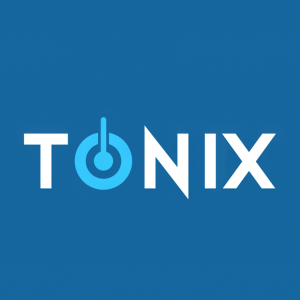Tonix Pharmaceuticals Presented Data on TNX-801 Mpox Vaccine at World Vaccine Congress–Europe 2025
Rhea-AI Summary
Tonix Pharmaceuticals (Nasdaq: TNXP) presented preclinical data for its investigational live, attenuated vaccine candidate TNX-801 at World Vaccine Congress–Europe 2025 (Oct 14–16, 2025).
Presentations reported that a single dose of TNX-801 produced durable immunogenicity for at least 14 months, elicited strong neutralizing antibodies, and protected non-human primate, rabbit, and murine models from clinical disease and mortality after mpox challenge. TNX-801 was described as well tolerated across percutaneous, subcutaneous, and intramuscular routes. The company said the data support advancing TNX-801 toward clinical development and noted interest in evaluating a microneedle patch delivery option.
Positive
- Durability: immune protection observed for at least 14 months
- Single-dose efficacy shown across multiple animal species
- Protection: prevented clinical disease and mortality in challenge models
- Tolerability: well tolerated via percutaneous, subcutaneous, and intramuscular routes
Negative
- Preclinical only: no human clinical data reported yet
- Developmental stage: data support advancement but clinical timelines not specified
News Market Reaction
On the day this news was published, TNXP declined 1.01%, reflecting a mild negative market reaction. This price movement removed approximately $2M from the company's valuation, bringing the market cap to $165M at that time.
Data tracked by StockTitan Argus on the day of publication.
TNX-801 is a live virus vaccine investigational candidate, designed to provide durable protection against mpox and smallpox
TNX-801 demonstrated favorable safety, immunogenicity, and long-term protection in multiple preclinical models
Data support advancement of TNX-801 toward clinical development
CHATHAM, N.J., Oct. 17, 2025 (GLOBE NEWSWIRE) -- Tonix Pharmaceuticals Holding Corp. (Nasdaq: TNXP) (“Tonix” or the “Company”) presented data in an oral presentation at the World Vaccine Congress–Europe 2025, held October 14–16, 2025, in Amsterdam, the Netherlands. A copy of the Company’s presentation, titled “Safety, Durability and Protection of a Single-Dose TNX-801 Mpox Vaccine,” is available under the Scientific Presentations tab of the Tonix website at www.tonixpharma.com.
“Vaccines remain a cornerstone of pandemic preparedness and biodefense,” said Seth Lederman, M.D., Chief Executive Officer of Tonix Pharmaceuticals. “The data presented in Amsterdam support the potential of TNX-801 as a next-generation orthopoxvirus vaccine candidate with the ability to confer durable protection. We believe TNX-801 has the potential to strengthen global readiness for emerging and re-emerging poxvirus threats.”
TNX-801 is a live, attenuated, minimally replicative investigational vaccine candidate based on horsepox virus and is being developed to protect against mpox (monkeypox) and smallpox. Preclinical data presented by Sina Bavari, Ph.D., Executive Vice President, Infectious Disease Research at Tonix Pharmaceuticals, demonstrated that TNX-801 produced durable immune protection following a single dose and was well tolerated across multiple routes of administration, including percutaneous, subcutaneous, and intramuscular delivery. TNX-801 elicited strong neutralizing antibody responses and protected animals from clinical disease and mortality following mpox challenge in non-human primate, rabbit, and murine models. Immunogenicity and durability were observed for at least 14 months post-vaccination.
“We are encouraged by the consistency and durability of the TNX-801 data across multiple preclinical models,” said Dr. Sina Bavari. “We are also excited by the opportunity to evaluate microneedle patch technology as a novel delivery platform to simplify administration and expand vaccine accessibility in future development stages.”
About TNX-801*
TNX-801 (recombinant horsepox virus) is an, attenuated, minimally replicative, live virus vaccine based on horsepox in pre-clinical development to prevent mpox and smallpox. Tonix reported positive preclinical efficacy data, demonstrating that TNX-801 vaccination protected non-human primates against lethal challenge with monkeypox. After a single dose vaccination, TNX-801 prevented clinical disease and lesions and decreased shedding in the mouth and lungs of non-human primates. The findings are consistent with mucosal immunity and suggest the ability to block forward transmission, similar to Dr. Edward Jenner’s vaccine, which eradicated smallpox and kept mpox out of the human population. TNX-801 is based on synthesized horsepox which is believed to be more closely related to Dr. Jenner’s vaccine than 20th century vaccinia viruses. Smallpox vaccines descended from Jenner’s vaccine used prior to 1900 would be called horsepox by modern nomenclature.. Tonix has received official written response from a Type B pre-Investigational New Drug Application (IND) meeting with the U.S. Food and Drug Administration (FDA) to develop TNX-801 as a potential vaccine to protect against mpox disease and smallpox. Tonix has announced a collaboration with the Kenya Medical Research Institute (KEMRI) to design, plan and seek regulatory approval for a Phase I clinical study of TNX-801 in Kenya. The Company believes TNX-801 has the potential to make a global impact on mpox and the risk of smallpox because of its durable T-cell immune response, the potential to manufacture at scale, and the use of a lower dose than non-replicating vaccines. The FDA-approved non-replicating mpox vaccine Jynneos® requires two doses and provides a relatively short duration of protection. FDA also recently approved ACAM2000, a live, replicating vaccinia vaccine for prevention of mpox. ACAM200 is a clone from DryVax®, a 20th century vaccinia vaccine derived from the NYCBH strain. Pre-clinical results from an mRNA vaccine recently showed some protection from a Clade I monkeypox challenge, but with multiple break-through lesions in vaccinated animals.
Tonix Pharmaceuticals Holding Corp.*
Tonix Pharmaceuticals is a fully-integrated biotechnology company with marketed products and a pipeline of development candidates. Tonix has received FDA approval for TonmyaTM, a first-in-class, non-opioid analgesic medicine for the treatment of fibromyalgia, a chronic pain condition that affects millions of adults. This marks the first approval for a new prescription medicine for fibromyalgia in more than 15 years. Tonix also markets two treatments for acute migraine in adults. Tonix’s development portfolio is focused on central nervous system (CNS) disorders, immunology, immuno-oncology, rare disease and infectious disease. TNX-102 SL is being developed to treat acute stress reaction and acute stress disorder under a Physician-Initiated IND at the University of North Carolina in the OASIS study funded by the U.S. Department of Defense (DoD). TNX-102 SL is also in development for major depressive disorder. Tonix’s immunology development portfolio consists of biologics to address organ transplant rejection, autoimmunity and cancer, including TNX-1500, which is an Fc-modified humanized monoclonal antibody targeting CD40-ligand (CD40L or CD154) being developed for the prevention of allograft rejection and for the treatment of autoimmune diseases. Tonix’s rare disease portfolio includes TNX-2900, intranasal oxytocin potentiated with magnesium, in development for Prader-Willi syndrome. Tonix’s infectious disease portfolio includes TNX-801, a vaccine in development for mpox and smallpox, as well as TNX-4800, a monoclonal antibody for the seasonal prevention of Lyme Disease. Finally, TNX-4200 for which Tonix has a contract with the U.S. DoD’s Defense Threat Reduction Agency (DTRA) for up to
* Tonix’s product development candidates are investigational new drugs or biologics; their efficacy and safety have not been established and have not been approved for any indication.
This press release and further information about Tonix can be found at www.tonixpharma.com.
Forward Looking Statements
Certain statements in this press release are forward-looking within the meaning of the Private Securities Litigation Reform Act of 1995. These statements may be identified by the use of forward-looking words such as “anticipate,” “believe,” “forecast,” “estimate,” “expect,” and “intend,” among others. These forward-looking statements are based on Tonix's current expectations and actual results could differ materially. There are a number of factors that could cause actual events to differ materially from those indicated by such forward-looking statements. These factors include, but are not limited to, risks related to the failure to successfully launch and commercialize Tonmya and any of our approved products; risks related to the failure to obtain FDA clearances or approvals and noncompliance with FDA regulations; risks related to the timing and progress of clinical development of our product candidates; our need for additional financing; uncertainties of patent protection and litigation; uncertainties of government or third party payor reimbursement; limited research and development efforts and dependence upon third parties; and substantial competition. As with any pharmaceutical under development, there are significant risks in the development, regulatory approval and commercialization of new products. Tonix does not undertake an obligation to update or revise any forward-looking statement. Investors should read the risk factors set forth in the Annual Report on Form 10-K for the year ended December 31, 2024, as filed with the Securities and Exchange Commission (the “SEC”) on March 18, 2025, and periodic reports filed with the SEC on or after the date thereof. All of Tonix's forward-looking statements are expressly qualified by all such risk factors and other cautionary statements. The information set forth herein speaks only as of the date thereof.
Investor Contacts
Jessica Morris
Tonix Pharmaceuticals
investor.relations@tonixpharma.com
(862) 799-8599
Brian Korb
astr partners
(917) 653-5122
brian.korb@astrpartners.com
Media Contact
Ray Jordan
Putnam Insights
ray@putnaminsights.com
INDICATION
TONMYA is indicated for the treatment of fibromyalgia in adults.
CONTRAINDICATIONS
TONMYA is contraindicated:
In patients with hypersensitivity to cyclobenzaprine or any inactive ingredient in TONMYA. Hypersensitivity reactions may manifest as an anaphylactic reaction, urticaria, facial and/or tongue swelling, or pruritus. Discontinue TONMYA if a hypersensitivity reaction is suspected.
With concomitant use of monoamine oxidase (MAO) inhibitors or within 14 days after discontinuation of an MAO inhibitor. Hyperpyretic crisis seizures and deaths have occurred in patients who received cyclobenzaprine (or structurally similar tricyclic antidepressants) concomitantly with MAO inhibitors drugs.
During the acute recovery phase of myocardial infarction, and in patients with arrhythmias, heart block or conduction disturbances, or congestive heart failure.
In patients with hyperthyroidism.
WARNINGS AND PRECAUTIONS
Embryofetal toxicity: Based on animal data, TONMYA may cause neural tube defects when used two weeks prior to conception and during the first trimester of pregnancy. Advise females of reproductive potential of the potential risk and to use effective contraception during treatment and for two weeks after the final dose. Perform a pregnancy test prior to initiation of treatment with TONMYA to exclude use of TONMYA during the first trimester of pregnancy.
Serotonin syndrome: Concomitant use of TONMYA with selective serotonin reuptake inhibitors (SSRIs), serotonin norepinephrine reuptake inhibitors (SNRIs), tricyclic antidepressants, tramadol, bupropion, meperidine, verapamil, or MAO inhibitors increases the risk of serotonin syndrome, a potentially life-threatening condition. Serotonin syndrome symptoms may include mental status changes, autonomic instability, neuromuscular abnormalities, and/or gastrointestinal symptoms. Treatment with TONMYA and any concomitant serotonergic agent should be discontinued immediately if serotonin syndrome symptoms occur and supportive symptomatic treatment should be initiated. If concomitant treatment with TONMYA and other serotonergic drugs is clinically warranted, careful observation is advised, particularly during treatment initiation or dosage increases.
Tricyclic antidepressant-like adverse reactions: Cyclobenzaprine is structurally related to TCAs. TCAs have been reported to produce arrhythmias, sinus tachycardia, prolongation of the conduction time leading to myocardial infarction and stroke. If clinically significant central nervous system (CNS) symptoms develop, consider discontinuation of TONMYA. Caution should be used when TCAs are given to patients with a history of seizure disorder, because TCAs may lower the seizure threshold. Patients with a history of seizures should be monitored during TCA use to identify recurrence of seizures or an increase in the frequency of seizures.
Atropine-like effects: Use with caution in patients with a history of urinary retention, angle-closure glaucoma, increased intraocular pressure, and in patients taking anticholinergic drugs.
CNS depression and risk of operating a motor vehicle or hazardous machinery: TONMYA monotherapy may cause CNS depression. Concomitant use of TONMYA with alcohol, barbiturates, or other CNS depressants may increase the risk of CNS depression. Advise patients not to operate a motor vehicle or dangerous machinery until they are reasonably certain that TONMYA therapy will not adversely affect their ability to engage in such activities.
Oral mucosal adverse reactions: In clinical studies with TONMYA, oral mucosal adverse reactions occurred more frequently in patients treated with TONMYA compared to placebo. Advise patients to moisten the mouth with sips of water before administration of TONMYA to reduce the risk of oral sensory changes (hypoesthesia). Consider discontinuation of TONMYA if severe reactions occur.
ADVERSE REACTIONS
The most common adverse reactions (incidence ≥
DRUG INTERACTIONS
MAO inhibitors: Life-threatening interactions may occur.
Other serotonergic drugs: Serotonin syndrome has been reported.
CNS depressants: CNS depressant effects of alcohol, barbiturates, and other CNS depressants may be enhanced.
Tramadol: Seizure risk may be enhanced.
Guanethidine or other similar acting drugs: The antihypertensive action of these drugs may be blocked.
USE IN SPECIFIC POPULATIONS
Pregnancy: Based on animal data, TONMYA may cause fetal harm when administered to a pregnant woman. The limited amount of available observational data on oral cyclobenzaprine use in pregnancy is of insufficient quality to inform a TONMYA-associated risk of major birth defects, miscarriage, or adverse maternal or fetal outcomes. Advise pregnant women about the potential risk to the fetus with maternal exposure to TONMYA and to avoid use of TONMYA two weeks prior to conception and through the first trimester of pregnancy. Report pregnancies to the Tonix Medicines, Inc., adverse-event reporting line at 1-888-869-7633 (1-888-TNXPMED).
Lactation: A small number of published cases report the transfer of cyclobenzaprine into human milk in low amounts, but these data cannot be confirmed. There are no data on the effects of cyclobenzaprine on a breastfed infant, or the effects on milk production. The developmental and health benefits of breastfeeding should be considered along with the mother’s clinical need for TONMYA and any potential adverse effects on the breastfed child from TONMYA or from the underlying maternal condition.
Pediatric use: The safety and effectiveness of TONMYA have not been established.
Geriatric patients: Of the total number of TONMYA-treated patients in the clinical trials in adult patients with fibromyalgia, none were 65 years of age and older. Clinical trials of TONMYA did not include sufficient numbers of patients 65 years of age and older to determine whether they respond differently from younger adult patients.
Hepatic impairment: The recommended dosage of TONMYA in patients with mild hepatic impairment (HI) (Child Pugh A) is 2.8 mg once daily at bedtime, lower than the recommended dosage in patients with normal hepatic function. The use of TONMYA is not recommended in patients with moderate HI (Child Pugh B) or severe HI (Child Pugh C). Cyclobenzaprine exposure (AUC) was increased in patients with mild HI and moderate HI compared to subjects with normal hepatic function, which may increase the risk of TONMYA-associated adverse reactions.
Please see additional safety information in the full Prescribing Information.
To report suspected adverse reactions, contact Tonix Medicines, Inc. at 1-888-869-7633, or the FDA at 1-800-FDA-1088 or www.fda.gov/medwatch.








